“I see indexing not only as an obvious method of organization, but as an act of preservation,” writes Rebekah Weikel, in a carefully-worded and thoughtfully-expressed email conversation with writer, author, and bibliophile Beau Rice, about online archive Interlude Docs. “Conceptually speaking, the site’s Index is a registry, chronicle, or ‘permanent’ address to park what is gone, or limitlessly unfixed.” The LA-based publisher—known for her work at the helm of the influential Penny-Ante Editions, operating between 2006 and 2016—defines her latest project as “a digital repository consisting of documents engaged with the theme of impermanence.” An online space for quiet reflection that collects and stores documents created by those working across the arts, artists, filmmakers and musicians; authors, writers and academics, contribute ephemera, personal artifacts, and media; essays, short scripts, and media works, that take said subject across personal and impersonal terrain.
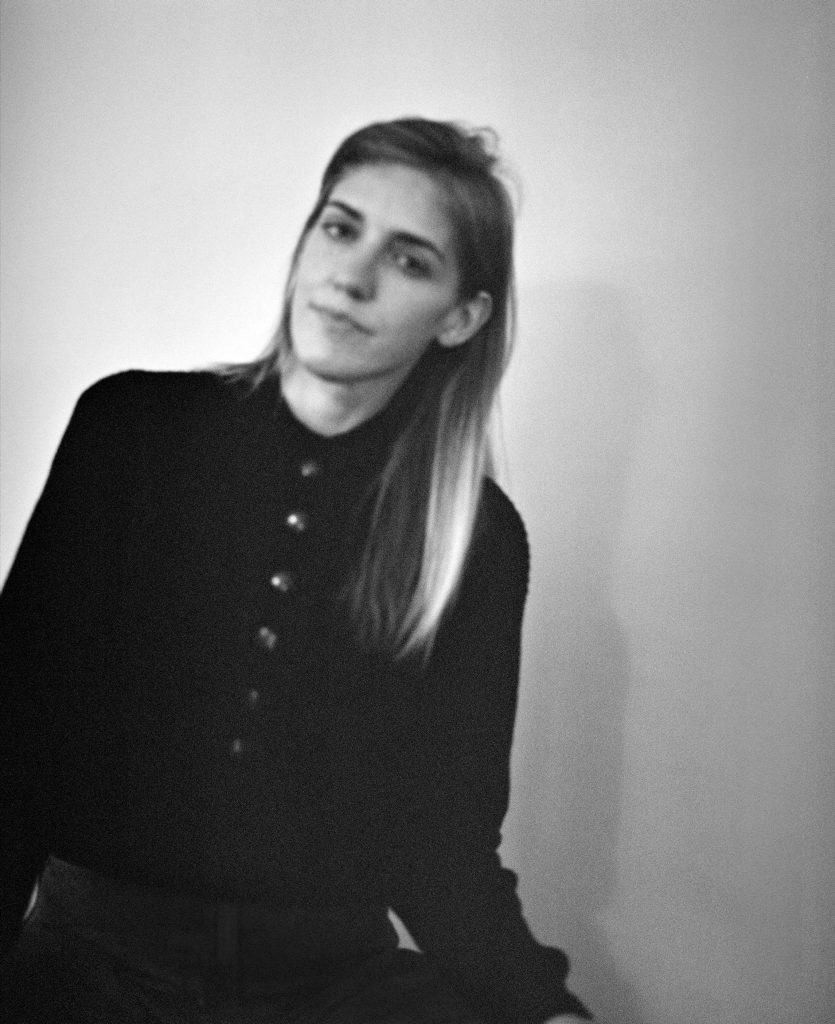
Presented in a minimal, even somber design, the web catalog acts as a memorial to the temporary, inspired by loss and initiated by the passing of a loved one. Cristine Brache, Sophia Al-Maria, and Adam Linder share poetry, film, a list of “Those Who’ve Danced Dances”. Chris Kraus, McKenzie Wark, and Jack Halberstam present images of objects, a watercolor, that conjure memories. Juliet Jacques, Flora Yin-Wong, Okkyung Lee, each respond to the tender invitation in their own way, as do the other sixty-plus (and growing) list of contributors.
Weikel’s press was an early assessor of how time-based media could be preserved in print and pursued formally, which is why she published Beau Rice’s 2013 book, Tex, composed almost entirely of text messages. That’s also why a conversation between author and publisher about Interlude Docs’s “gentle rebuke” of the Information Age and its poignant mission to grasp the ungraspable feels entirely appropriate.
**I’d like to start by asking about the form of Interlude Docs. My impression is that, elegantly, its structure imparts a memory of what the internet could be like before behemoth social media companies territorialized it, causing such creepiness and exhaustion to pervade. It feels like a gentle rebuke. Did you have thoughts along these lines?
Rebekah Weikel: I like “gentle rebuke,” or that Interlude Docs feels a little distilled. It probably should feel that way. The project intends to archive the impermanent, which is to also mean preserve or extend the lifeline of the impermanent. Life online moves fast. The metrics that drive social media foster short-lived content and response—if that wheel stops, so does the dollar—and that ceaseless assault of information causes disorientation and detachment. Archives, on the other hand, can only be shaped by attachment. Their function is to possess material and, in a sense, possess time—to hold a record or document and suspend it at the point it is obtained. Also, there is inherent value in each piece in an archive, a notion that it is a part of a whole. In that sense, I’d say Interlude Docs is in direct conversation—or conflict—with the ways in which social media cheapens content, devalues time, and diminishes attachment.
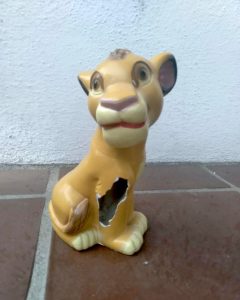
**And the archive is constructing “attachments” to what is impermanent?
RW: The irony is not lost on me.
**You lost a partner in 2020; I’ve thought of that as essential to the project, though it is not apparent. Missing, definitively. What is there to say?
RW: I lost a partner in 2020 to cancer. It is essential insofar as I probably would not have initiated this project had he not passed away, but I hesitate to say more. The majority of the contributors to the archive did not know him, so this impetus shouldn’t have any reflection on their participation. Saying that, 2020 did not bring my first big loss—I lost both my parents in the late aughts, which was difficult and, since, friends too. No doubt, these events play a role in past and present editorial interests. Personally, I feel I’ve made—or maybe have been forced to make—great peace with definitive ends, or impermanence, but I find myself generally interested in the “missing” part. The change we move through generates so much of the poetry in the world, no?
Pain, regret, nostalgia, yearning, desire, fondness, disgust, liberation. I wanted to create an organized digital space that collected this poetry, or diverse responses around a single idea. I first considered “loss” as the focus, something obviously close to home, but ultimately felt it was too narrow and limiting, and frankly, too sad. So, then, pull back the lens. What is loss? Presence, then absence. A change in variables. Do these shifts move anything inside you? I’m interested, and as well as these intimate interactions with change, I am deeply intrigued by history. Impermanence provides history—endings and iterations through fluctuations or mutations. Nothing goes untouched: relationships, language, laws, technology, communities, physical spaces, landscapes, borders (how they are drawn and redrawn). Again, do these shifts move anything inside you, or what do they mean in a broader context? There are stories, perspectives, and artifacts buried therein, and that is what I hope Interlude Docs can excavate and house.
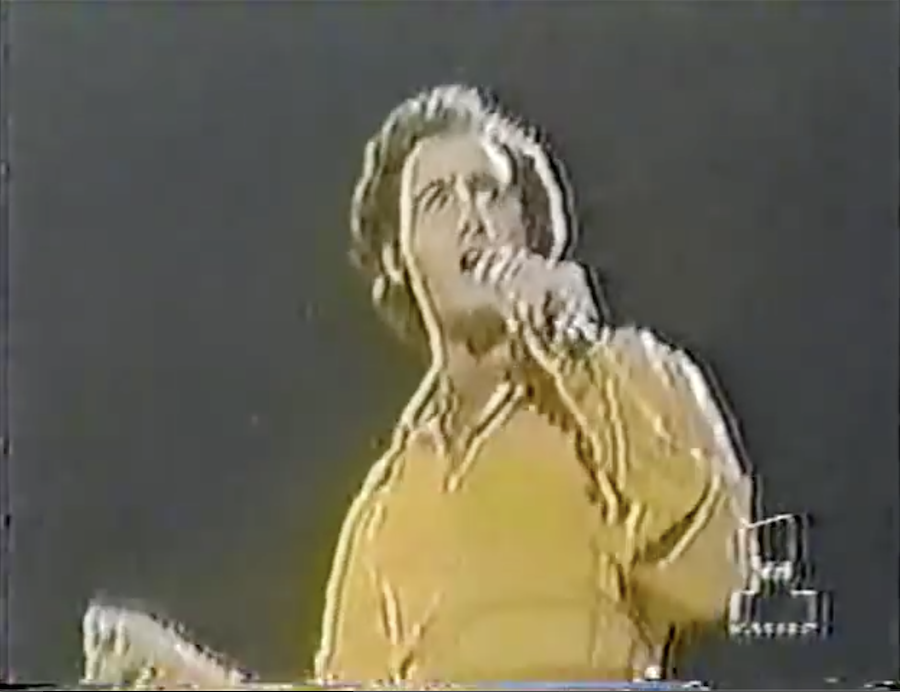
**Simply calling it “history” feels good to me. Many of the entries are recuperative… A lot of documents here emit a certain implication that they wouldn’t be anywhere, or nowhere in the open, were it not for this one unusual archive having been constructed.
RW: Building contextual homes for the orphaned or discarded. Call Freud.
**I love Keren Cytter’s entry, a mere link to a grainy video of Andy Kaufman performing his song “I Trusted You”. It’s stirring and stunning.
RW: A simple, but brilliant contribution that speaks to the complexity and inconsistent nature of trust.
**Dozens of the documents interest me. But the one I can’t resist mentioning is the MLIS student’s exploration of the history of High Risk Books. If you’ll excuse some sentimentality, it was thrilling and gratifying to come across this person’s research; it’s hard to convey the wonder and fascination that series of books has long had for me; or rather, for LA-centric, biblio-holic, 90s children.
RW: Caleb Allen’s document—it’s great. A long time ago now, we worked at an art gallery together and he would read on his lunch breaks. It was hard not to notice that we both read similar fringe books. We then discovered we shared an overactive fascination with High Risk Books, and its very particular cusp-y, pre/post-digital, web 1.0 aesthetic generated by Rex Ray and his work with the primitive design technology of the late 80s, early 90s.
Caleb left the gallery job and ended up at UCLA, which is where he began his research around the imprint. Penny-Ante was cited in his work as a press influenced by High Risk, which is how I think I was eventually looped into his work’s existence. There has been very little written about the history of High Risk, so Caleb’s research feels so valuable. It was so satisfying, too, indexing that piece on Interlude Docs—adding all those names and authors that had such an impact on my youngest goals as an editor.
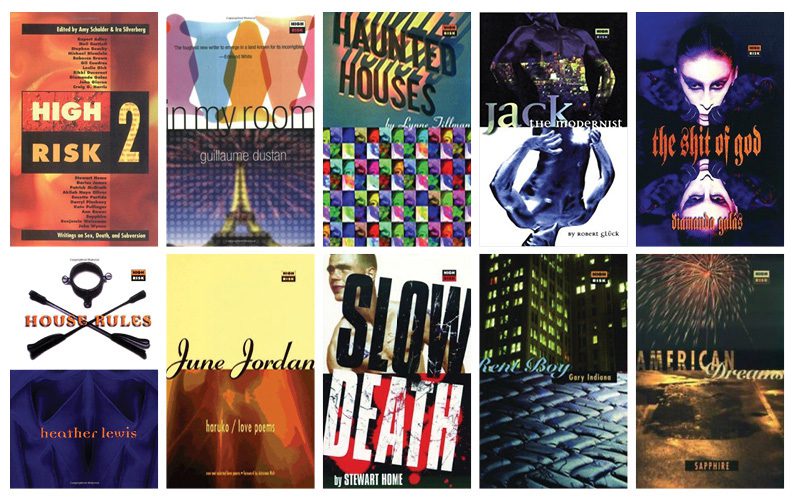
**Can you talk a little about the project’s index and indexing, what purpose do you see it serving?
RW: I see indexing not only as an obvious method of organization, but as an act of preservation. Conceptually speaking, the site’s Index is a registry, chronicle, or “permanent” address to park what is gone or limitlessly unfixed. But then—like any other index—a place to study and find common links. I appreciate that you can scan and find Rare & Racy in Sheffield, or 2 Bridges Music Arts in New York, both stores now closed, thanks to Owen Hatherley and Sukhdev Sandhu’s respective documents; or that something more general, like “family” or the sense of family, can be found across many others. Right now in the archive, Lily Jue Sheng, Dodie Bellamy, Trajal Harrell, Tan Lin, and many others occupy that tag, but all bring “family” to their documents in variegated ways.
**Lily Jue Sheng’s document is a recording of her parents speaking in Shanghainese, while preparing a meal. Or there is Celia Hollander’s document, where she writes about the physical destruction of a hard drive and attaches a sixteen second audio recording of a group of musicians who are realizing that the many minutes of music they had just finished playing together had not, in fact, been recorded. These are pretty great metaphors for the themes at the heart of Interlude. Both these entries seem to occupy the “other” space along with those other documents that use recordings, film, image, and personal items to respond to impermanence. Is that encouraged?
RW: Yes. The archive, in general, is probably an “other” space. An oral history project, essentially, that is open to experiments and conceptual expression. Documents will vary.
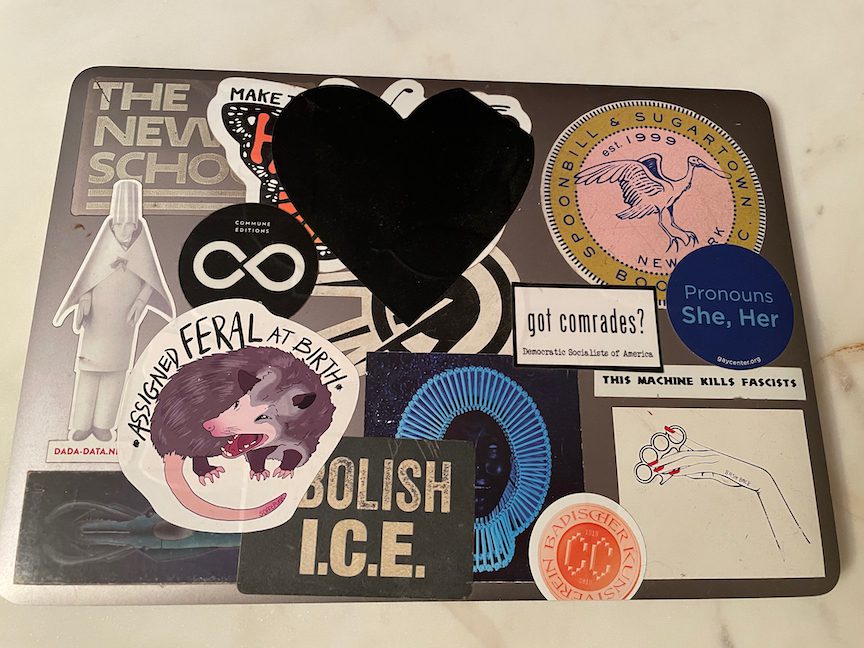
**Your work as a book publisher at Penny-Ante preceded this. Can you tell us about that press, how it came to exist, and what its distinctions were?
RW: Penny-Ante was casually-founded in 2006, printed three loose arts journals, then pivoted to something a little more calculated in 2012 with the Success and Failure Series. The intention behind the series was to publish works that unpacked contradiction within culture and politics through experiments with content and form. I’d like to think the books were challenging in both areas.
**And Penny-Ante is done?
I think so. The last book was published in 2016. Lifetimes ago. I felt, and maybe still feel, there was more to say with the Success and Failure Series—it feels incomplete to me, but for now: Interlude Docs, some writing, and a few other things.
**What are the “other things”?
Film. I am writing a series of short films I will shoot and edit.
**Vague.
I only make loose plans. When is anything certain?**
Interlude Docs, curated by Rebekah Weikel, is online now and running indefinitely.













